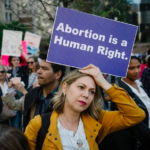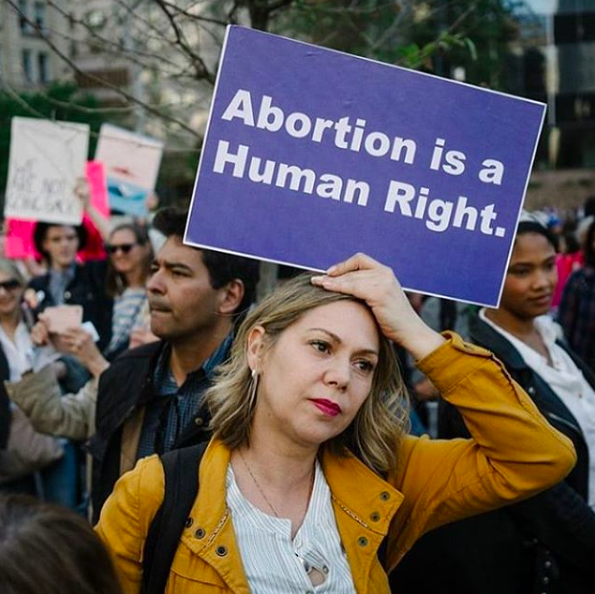 I’ve been following the Supreme Court of the United States (SCOTUS) justices and cases for decades. I remember setting up protests in 2005 when President George W. Bush nominated John Roberts to SCOTUS. Two things happened in short order in 2005 that allowed Roberts to go from a judge on the US Court of Appeals for only 2 years to Chief Justice of the US Supreme Court. Roberts was originally nominated in July 2005 to replace Justice Sandra Day O’Connor upon her retirement. But then Justice Rehnquist died unexpectedly in September before Roberts’ confirmation hearing began. That allowed Bush to nominate Roberts for Chief Justice. Bush later appointed Samuel Alito as Associate Justice replacing Justice O’Connor. Bad luck for progressive women getting two conservative justices in the court like that. Justice O’Connor, who had been the first female justice on the Supreme Court, began as a conservative but developed into a moderate by 1992, so losing her was significant. The court was drastically changed with Roberts in charge and Alito on board.
I’ve been following the Supreme Court of the United States (SCOTUS) justices and cases for decades. I remember setting up protests in 2005 when President George W. Bush nominated John Roberts to SCOTUS. Two things happened in short order in 2005 that allowed Roberts to go from a judge on the US Court of Appeals for only 2 years to Chief Justice of the US Supreme Court. Roberts was originally nominated in July 2005 to replace Justice Sandra Day O’Connor upon her retirement. But then Justice Rehnquist died unexpectedly in September before Roberts’ confirmation hearing began. That allowed Bush to nominate Roberts for Chief Justice. Bush later appointed Samuel Alito as Associate Justice replacing Justice O’Connor. Bad luck for progressive women getting two conservative justices in the court like that. Justice O’Connor, who had been the first female justice on the Supreme Court, began as a conservative but developed into a moderate by 1992, so losing her was significant. The court was drastically changed with Roberts in charge and Alito on board.
In 2020, SCOTUS includes 5 justices who are very conservative, including Roberts. This court took up Louisiana’s case even though it knew SCOTUS had already ruled the same law unconstitutional in 2016. That is one reason the ruling against Louisiana’s law was incredible and surprising great news.
On the other hand, SCOTUS did its job in the Louisiana June Medical Services v. Russo case, following precedent as it is supposed to do. The decision was made by one vote (5 to 4) when it should have been unanimous. Roberts voted against abortion rights in the 2016 case. That fifth vote by Chief Justice John Roberts could have gone either way.
On 6/29/20, the United States Supreme Court affirmed the right to abortion by striking down a law requiring doctors performing abortions at standalone clinics have “admitting privileges” at local hospitals. The “local hospitals” would have to be within 30 miles of the abortion clinic, non-existent for many rural clinics. The law had serious penalties for doctors performing an abortion without the admitting privilege were possible jail time, fines, and serious penalties for the clinics as well. Louisiana enacted that law in 2014. In 2016, SCOTUS had overturned a nearly identical law in Texas, which had shuttered half of the state’s abortion clinics in a few short years. The Whole Woman’s Health v. Hellerstedt decision was made in 2016, before Trump was elected and put two controversial conservative justices on the Supreme Court, moving it strongly to the right.
“If such a law were upheld, it could close abortion clinics across the country, and severely limit women’s access to the procedure, without improving women’s health in the process,” according to “Abortion rights case is first test for right-leaning US supreme court,” 3/4/20, The Guardian. This is how dangerous the law is: 20 of 41 clinics had closed in Texas when the Texas bill with same wording had been enacted in 2013. Abortion providers called it “the clinic shutdown law.”
The situation is already dire in Louisiana, which only has 3 clinics left. According a report on Louisiana’s abortion statistics, over 8,000 abortions were performed in Louisiana in 2018, a 7% drop from 2017. More than two-thirds of abortion patients in 2018 were women of color.
There was another very dangerous aspect of this case. Louisiana also asked the justices to decide a separate point – should doctors and clinics be able to sue states that pass abortion restrictions on behalf of their patients? An unfavorable ruling on this would eliminate the rights of doctors and abortion providers to bring legal challenges to state and federal laws and policies. Doctors and abortion providers have been able to sue on behalf of women seeking abortions since at least the 1973 Roe v Wade landmark decision.
Such a ruling would have been devastating to abortion rights supporters. The Guardian explains, “If justices find doctors cannot sue on behalf of women seeking abortions, it could make it far more difficult to challenge even patently unconstitutional anti-abortion laws.”
SCOTUS should not have even heard this case. But with a majority of conservatives on board – they did. Between the unnecessary admitting privileges change and Louisiana’s request to take away the ability for abortion providers to sue on behalf of their patients, as they’ve been doing for decades, this could have been really devastating.
The SCOTUS majority is waiting for the chance to take away abortion, and more cases are in process. As of June 2020, there were at least 16 abortion cases before United States appeals courts, the last step before the Supreme Court, according to lawyers at Planned Parenthood Federation of America.
It is wonderful news that people in Louisiana will not have their abortion care further restricted by the “clinic shutdown law.” But women need more – there should be access to abortion care for all who need it, in all of the states. Only one abortion clinic is left in at least five states – Mississippi, Missouri, North Dakota, South Dakota and West Virginia. Women in rural areas generally have more barriers to abortion care. The way forward is to provide more access to abortion care and other health care in Louisiana and around the country. Overturning laws that unfairly target abortion providers would help.
Read more about this case from the time the hearings on it began at “Dangerous Times: SCOTUS to Revisit Roe v. Wade starting March 4, 2020“
– Gailya Paliga
President, NC National Organization for Women

[…] “SCOTUS Follows Precedent in Louisiana Abortion Case,” 7/8/20, […]
[…] SCOTUS Follows Precedent in Louisiana Abortion Case, Women Advance NC, 7/8/20 […]